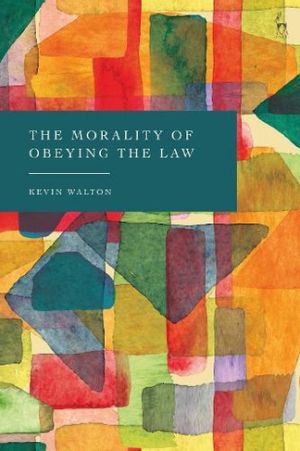
This book suggests a new direction for the old and lately vigorous debate about whether there is a moral obligation to obey the law. It argues that the imposition of unnecessary conditions has misdirected the search for such an obligation. These conditions matter – they favour some arguments over others – and they ought not to be accepted without adequate justification.
The book starts by asking what must be established by an argument for a moral obligation to obey the law. It asks what follows from a moral obligation to obey the law being a moral obligation. It then asks what follows from a moral obligation to obey the law being a species of political obligation. Finally, it asks what follows from a moral obligation to obey the law being an obligation to obey.
Having identified the conditions to be satisfied, the book considers three arguments. Two of these arguments – the argument from consent and the argument from the natural duty of justice – are more promising than is often thought. The third – the argument from membership – is doubted.